|
Genres, Themes, Actors, and Directors:
- Cavalry
- Doctors and Nurses
- James Whitmore Films
- Mistaken Identities
- Westerns
Review:
Samuel Fuller co-wrote the screenplay for this shoot-’em-up cavalry flick about an “accidental” military leader (Madison) whose all-purpose savvy and willingness to think outside the box serve him well in highly stressful situations. Madison — star of the 1950s television series “The Adventures of Wild Bill Hickok” — is well-cast in the central role as the humble yet brave doctor-turned-captain, while James Whitmore as his right-hand man is as solid as ever. Director David Butler makes fine use of new widescreen capabilities, with some impressive shots of a lengthy wagon train crossing the prairie, and a row of Indians perched along the ridge of a hill. Unfortunately, Fuller’s screenplay frequently devolves into cliche: Madison is given a conventional love interest (Joan Weldon):
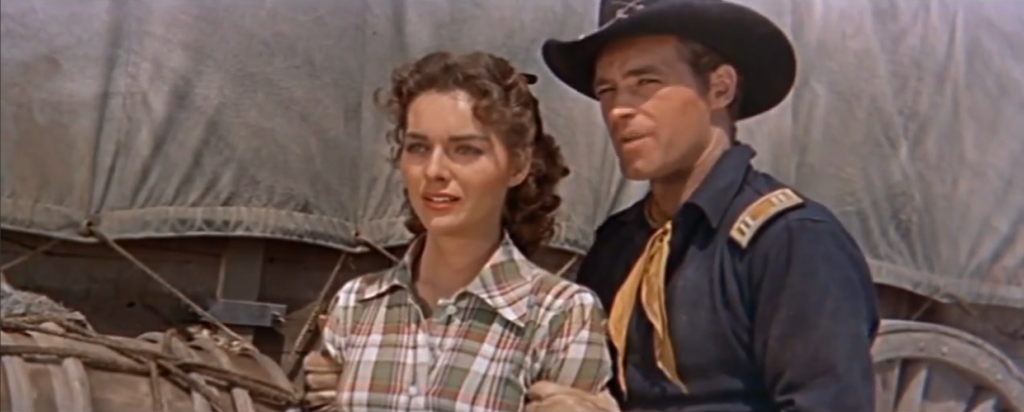
… an annoying “comedic” wiseacre (Harvey Lembeck) insists on questioning Madison’s authority:
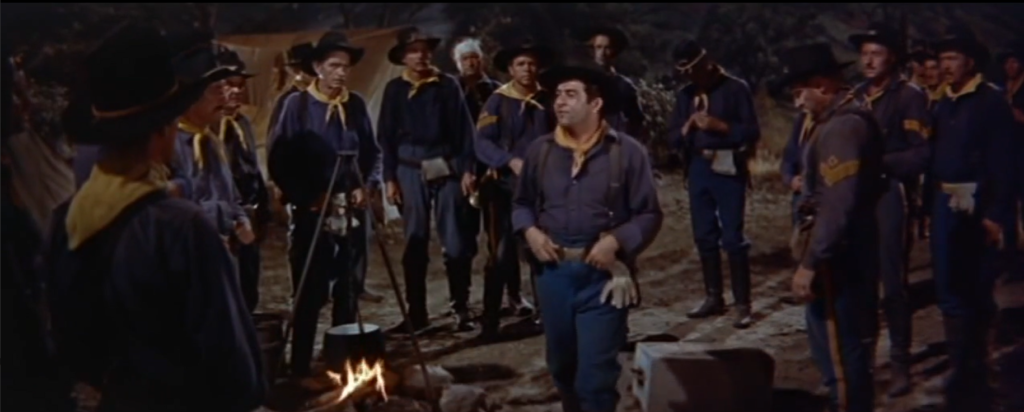
… and the Indians — who, naturally, lack any distinctive personalities — are repeatedly demeaned (Madison refers to them as possessing a “child’s logic” and “lacking civilization”).
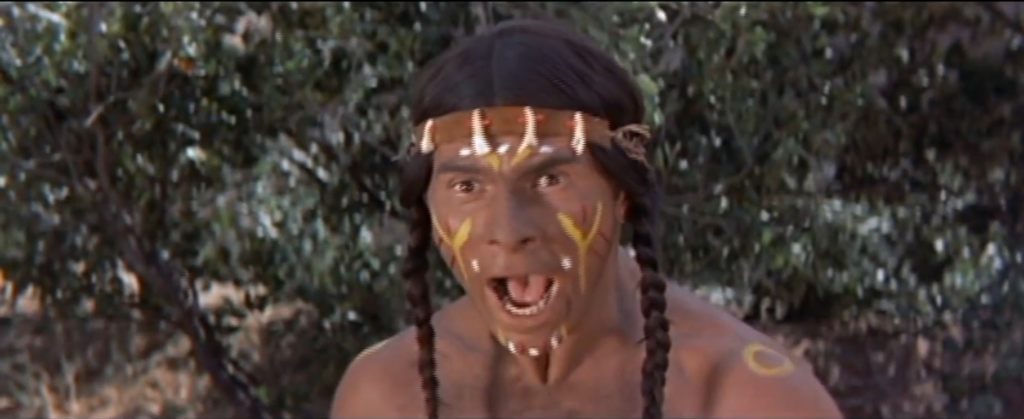
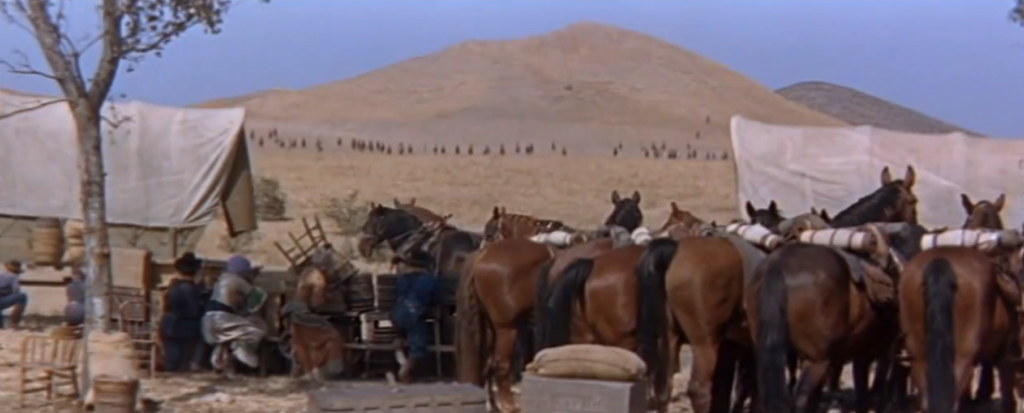
Otherwise, however, The Command remains an enjoyable western, and is certainly worth viewing once.
Note: The Command is notable as the first widescreen western of the 1950s, and Warner Brothers’ first Cinemascope production.
Redeeming Qualities and Moments:
- Guy Madison as Dr. MacClaw
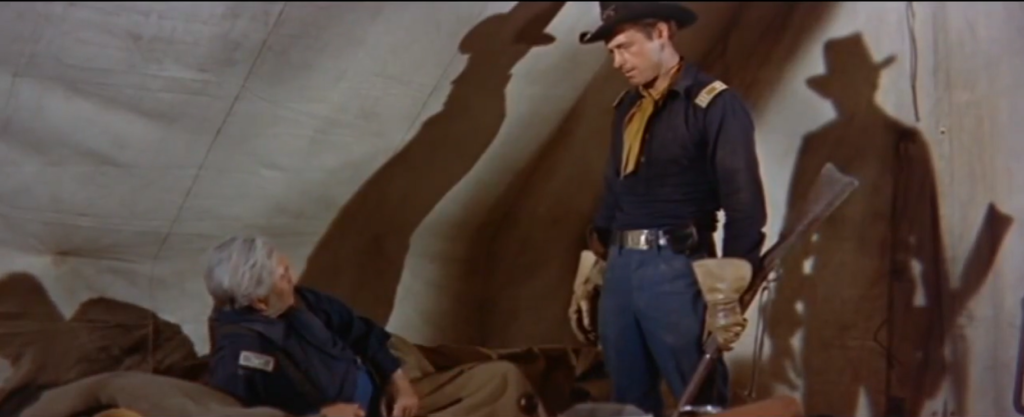
- James Whitmore as Sergeant Elliott
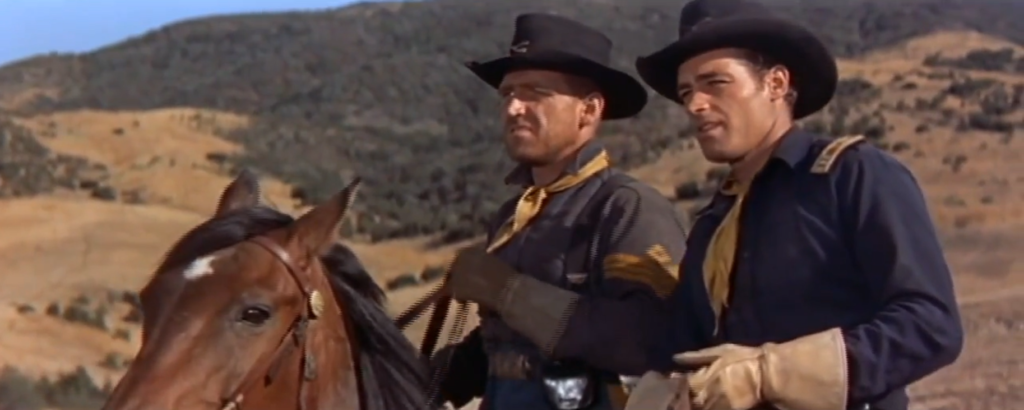
- Fine use of widescreen cinematography
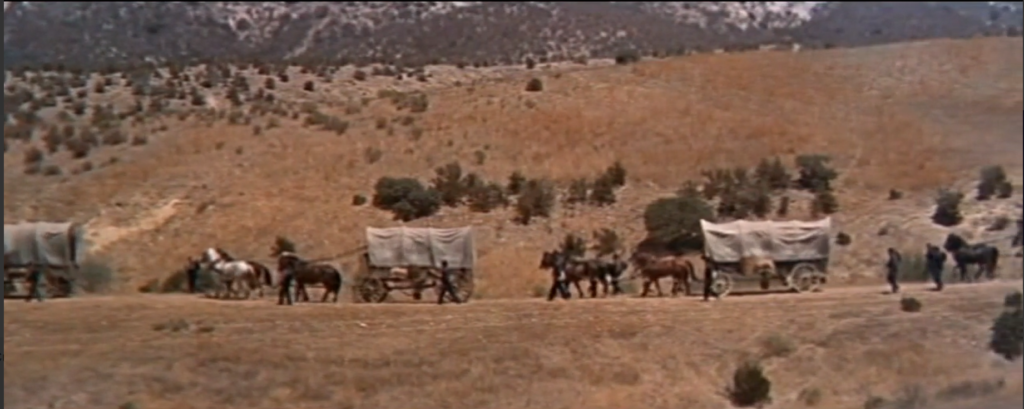
- The exciting final shoot-out
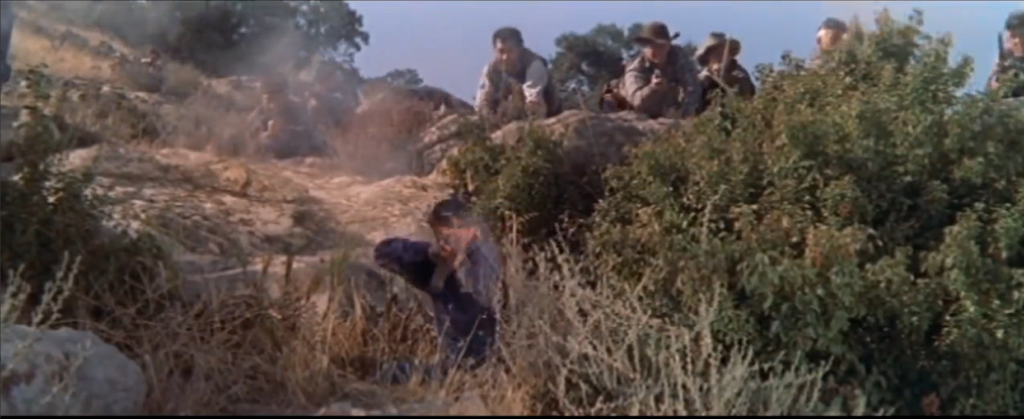
Must See?
No, but it’s certainly worth a look. Listed as a Sleeper in the back of Peary’s book.
Links:
|
One thought on “Command, The (1954)”
Ultimately, not a must –
~but…it certainly holds interest. Although I have my faves in the genre, I tend to approach a western tentatively. Many westerns have standard plots which seem to work just fine for undemanding heterosexual men. Not being macho either way (straight or gay), I’m on the lookout for something more complex. (Of course, I’m like that generally when it comes to film – and I believe the better films are the richer ones. Westerns can present particular roadblocks when it comes to being must-see.)
It’s the challenge of the western to have a very fresh angle. Other genres can have an easier time of it (i.e., horror films can break rules every which way) but the western has to (most often) be rooted in the frontier spirit. That can create limitations.
What makes ‘The Command’ most unique is that the threat is both without (Indians) and within (spread of smallpox) – so tension is more or less constant. The script is also very smart when it comes to small details of day-to-day military life: how these men think (esp. about how they are perceived by each other), what they pay attention to, how some will pull crap on each other while others are more interested in following the smart guy who will pull them out of danger.
[I don’t find the love interest all that conventional. Weldon is a gutsy, no-nonsense type; when love finally does blossom, it’s treated as pleasant but incidental. As well, it is true that Lembeck – his voice esp. – is annoying. But even that wears off if you allow yourself to forget all those beach party movies he made later in his career. …And, yes, the problem of skewing the view of the Indians: countless ‘war’ films have a one-sided focus, no? But that’s a whole issue in itself.]
If it’s not wildly memorable, ‘The Command’ is still rather satisfying on its terms while you’re watching it. It builds nicely, doesn’t lag and the acting is generally solid (with Whitmore a noticeable standout; of all of them, I really believe he’s under the skin of being a soldier).
If ‘The Command’ weren’t on this list, I can’t imagine why I would seek it out. It’s never mentioned anywhere – that I know of; still, it’s a nice little find.